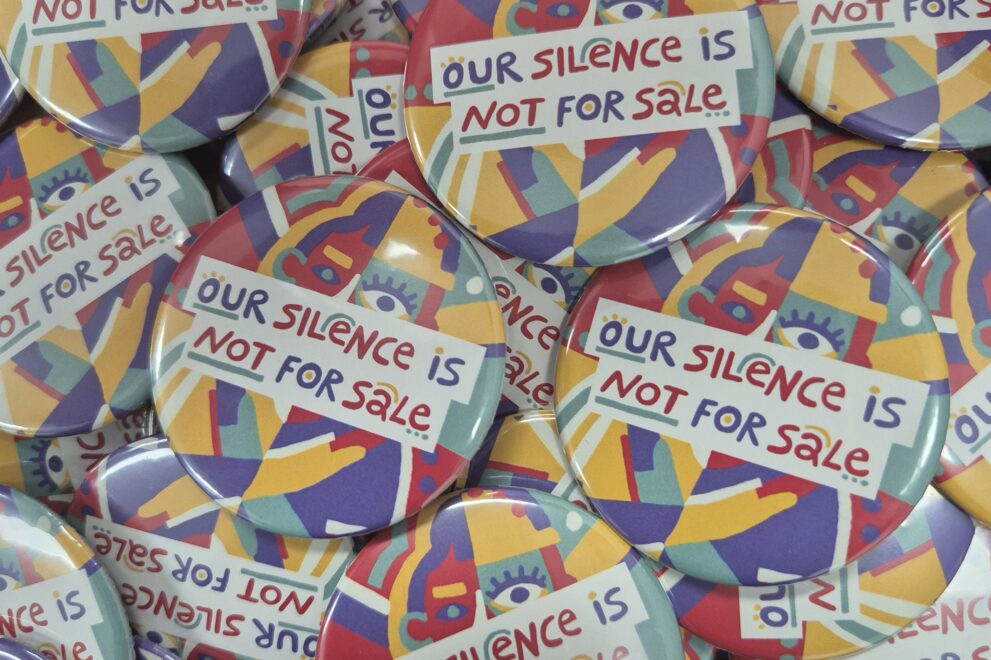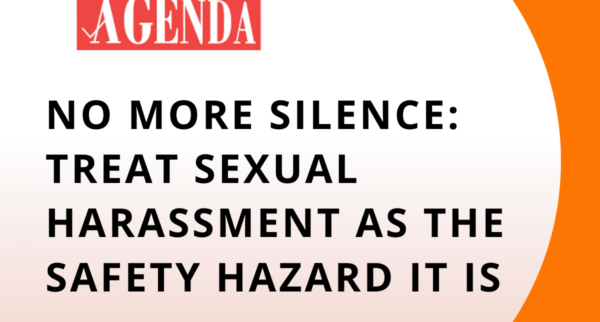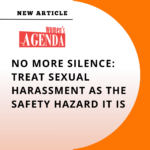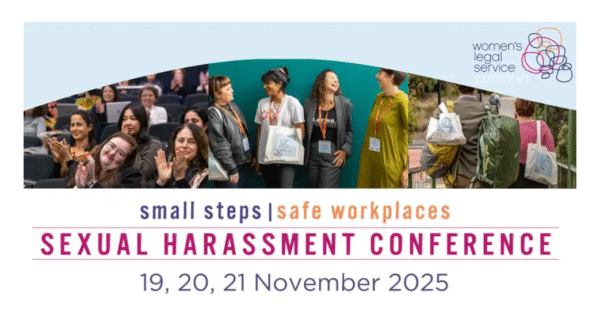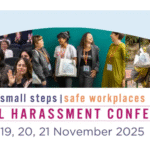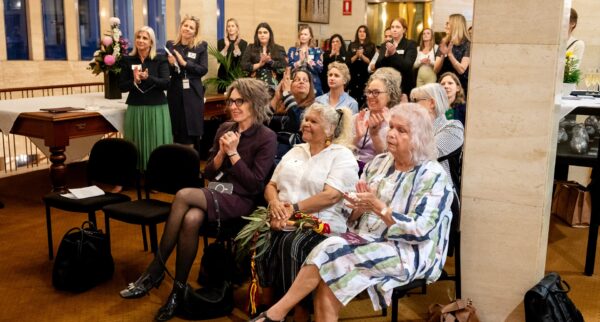A campaign to end the misuse of non-disclosure agreements (NDAs) and other unjust tools and laws that silence women across Australia
What is an NDA?
A non-disclosure agreement (NDA) is a legal obligation that requires confidentiality.
These agreements are widely used in sexual harassment and discrimination disputes. They require women who suffered harassment to keep their experience completely confidential or partly confidential – that is, they are not allowed to talk about what happened to them.
In circumstances where a woman does not want to stay silent, the insistence of confidentiality is a complete misuse of NDAs by employers or parties in positions of power.
Although NDAs mostly require all parties (employer, woman with experience of harassment, and the perpetrator) to maintain confidentiality, the agreement is almost always requested by the employer and perpetrator, not the employee.
Often the NDA serves the employer and perpetrator’s interests, and not the woman with experience of harassment.
Why does it matter for women with experience of harassment?
NDAs are too often used as a bargaining tool that forces women with experience of harassment to feel they must choose between achieving compensation for the harms they have suffered and speaking out to create broader awareness or change.
This coercive dynamic can leave women with experience of harassment feeling silenced, isolated, and fearful of the potential ramifications of even accidental disclosure to friends or family. While some women may wish to seek confidentiality (e.g. to protect their privacy, cultural context, or future employment prospects), many do not want an NDA at all.
We need to shift the balance of power back to women by reducing the coercive use of NDAs, ensuring women with experience of harassment retain greater control and autonomy over their story and the terms of resolution. This will promote safety and wellbeing by allowing disclosure where necessary (e.g. to seek support or warn others) and ensure monetary settlements focus on substantive remedies such as compensation, workplace change, or apologies – rather than silence.
Importantly, health risks of keeping secrets are well documented and can lead to post traumatic stress disorders, among other illnesses. The ability to speak and putting experiences into words will assist survivors in the healing process.
If a woman who experiences harassment or discrimination does want to negotiate an NDA, they should speak to their representative about quantifying the monetary value of staying silent. Women should be compensated fairly for giving up their right to speak.
What changes do we need to end the silence?
We want laws to ensure NDAs can only be used if the woman wants one. When a woman wants an NDA, the terms of those NDAs must be fair, reasonable and not used to cover up unsafe work practices and gendered violence.
Our campaign focuses on three key areas of work:
- We want national law reform and we support local efforts in each state and territory to end the misuse of NDAs
- Legal profession advocacy – we want to educate lawyers to ensure that they are meeting their Legal Profession (Solicitors) Conduct Rules when advising on NDAs to either the woman with experience of harassment, the perpetrator or the employer
- Research – we want to investigate the impacts of signing NDAs on women’s health, well-being, career navigation and security
Join us to build a movement in solidarity with women with experience of workplace harassment and discrimination and to push for strong laws in Australia that will end the silencing of women.
If you are considering signing an NDA and have not had legal advice, please get in touch with your local Working Women’s Centre.

